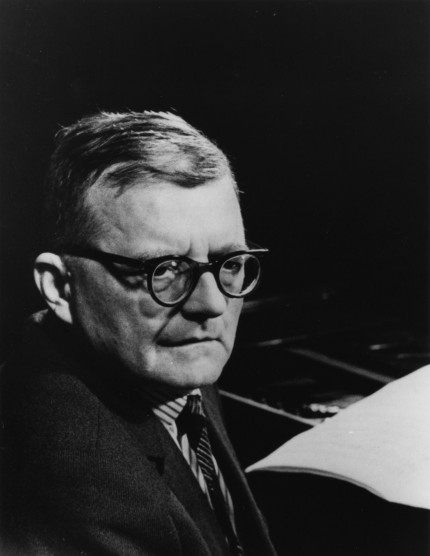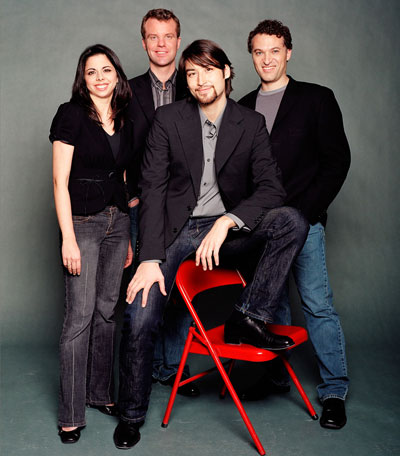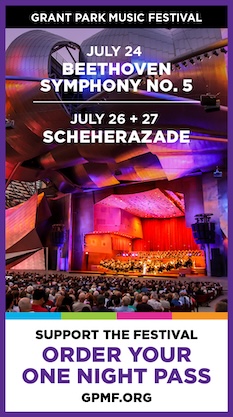Pacifica Quartet wraps a remarkable Shostakovich cycle

The fascinating journey that began last October ended Sunday with the Pacifica Quartet’s final installment in their survey of the complete string quartets of Dmitri Shostakovich.
Speaking before the performance of the final work in the series, the Quartet No. 15, second violinist Sibbi Bernhardsson spoke of what an illuminating project this has proved for the Pacifica members and how they have emerged with a greater understanding and enthusiasm for Shostakovich’s quartets than they ever imagined possible. Clearly the applause of the capacity audience at Roosevelt University’s Ganz Hall in response showed that those in attendance felt the same way.
The final three works, presented Sunday afternoon, were all written late in the composer’s life when he was beset by ill health and deepening depression. Shostakovich’s music here enters a sparer, even darker world than previously with increasingly crunched tonality, harsh dissonance, and nerve-jangling percussive effects. Solos often arise, set against the other three instruments, and it’s hard not to feel that their plaintive voice represents a besieged individual ruthlessly trod down by the impersonal brutality of the Soviet regime.
Cast in a single large movement, Shostakovich’s Quartet No. 13 certainly inhabits a bleaker landscape than any previous work in the cycle, even the Eighth. The music is launched with a mournful 12-tone viola solo and an air of interior meditation predominates, with a lugubrious cello solo, dirge-like bow taps on the backs of the players’ instruments, and violent chords and pizzicatos.
Dedicated to Vadim Borisovsky, violist of the Beethoven Quartet, the dark-voiced instrument is prominent throughout and Masumi Rostad’s expressively detailed playing was extraordinary even by the standards of this group. The quartet ends with a high whistling note like a chill wind in a graveyard, rising in volume and suddenly chopped off, here a jarring and effective end to a shattering performance.

With the ensuing Quartet No. 14, some light is restored with the gamboling cello line of the opening movement, which segues to the first violin and provides some slight relief, though the music soon gathers speed and becomes more hectic and driven.
The Adagio is the heart of this piece, deeply ruminative music led by the first violin and most sensitively played by Simin Ganatra. The cello is often spotlit in this work dedicated to Sergey Shirinsky, cellist of the Beethoven Quartet, and Brandon Vamos played with rich tone and unerring sensitivity, not least in the duetted passages for violin and cello with Ganatra. A little waltz-like motif in the concluding Allegretto closes the work, not in tragic fashion, but in a kind of uneasy and unsettled solace. The performance of the Fourteenth Quartet was one of the finest of the entire cycle, played with remarkable fire, commitment and expressive subtlety and shading.
Like Haydn’s Seven Last Words of Christ, Shostakovich’s final quartet, No. 15, is cast in a series of several slow movements. But there is no respite or spiritual salve in this unremittingly dark music, written in the final year of the composer’s life.
Played without pause, these six movements form an unbroken arc. This is undeniably death-haunted music with several quotations from Shostakovich’s earlier works and a pervasive melancholy that leads to complete resignation and despair.
The opening Elegy for two violins sets the gloomy sense of static submission to fate. There are protesting bursts of violent bravura and harsh tuttis in between the sadness—a viola lamentation, spectral passages, and an intensely expressive solo for first violin. A theme of child-like tenderness appears as if pleading for solace, but to no avail as the music descends to its final resigned cadence, snuffed out like a candle.
As polished and tautly focused as the Pacifica members’ playing was in the Fifteenth Quartet, the performance didn’t sound quite as lived in and interpretively mature as the other two works heard Sunday, lacking that last bit of expressive force and eloquence for Shostakovich’s final gaze into the abyss. No doubt their reading will gain in depth and insight before they take it into the studio.
Even with that, Sunday’s concert provided a successful coda to a remarkable musical series by this gifted ensemble. For those that missed these concerts, the good news is that the Pacifica Quartet is recording the complete Shostakovich set for the Cedille label, a box that will be issued in the fall.
Posted in Uncategorized
